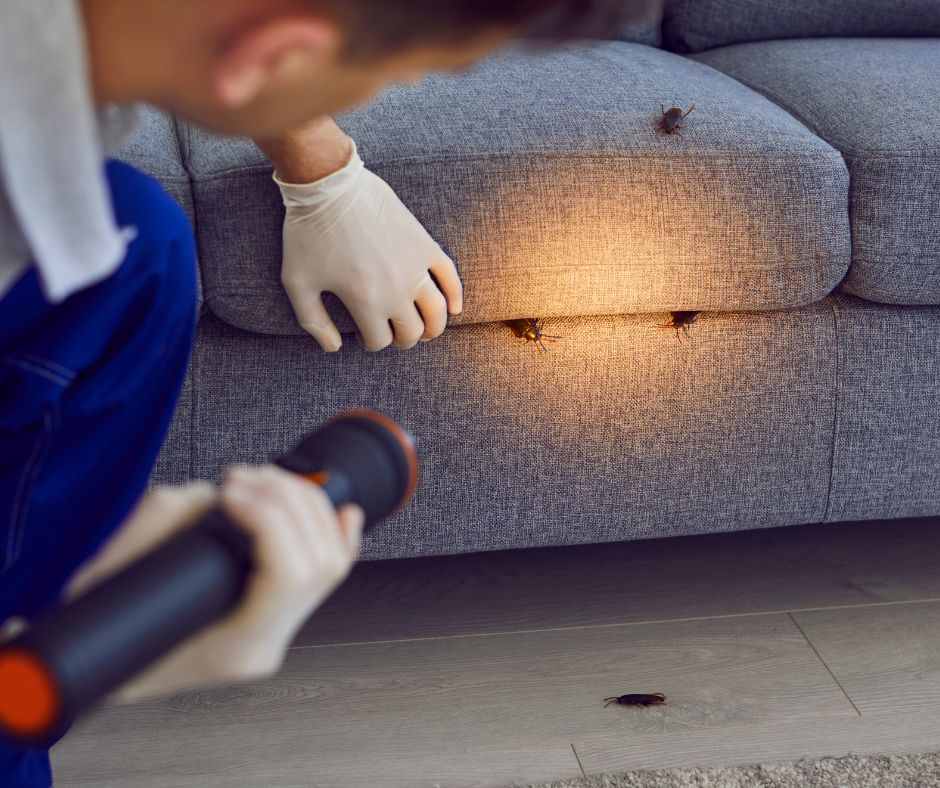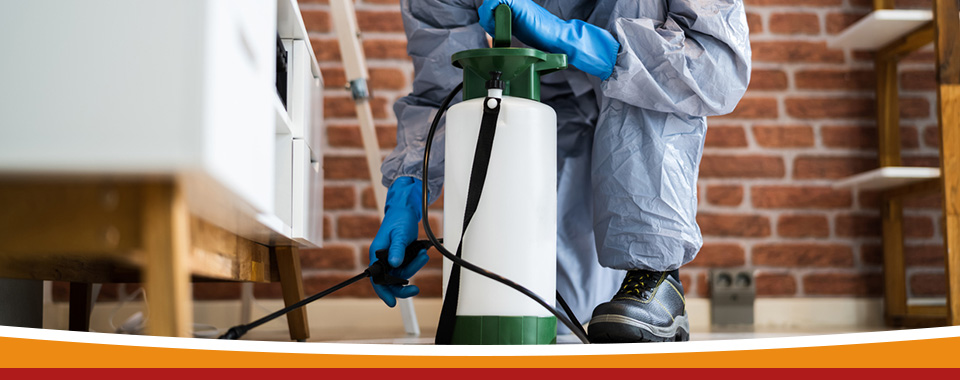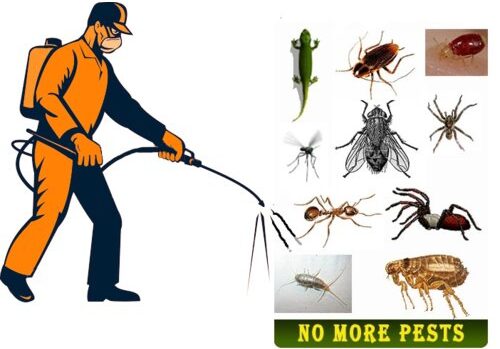Affordable Residential Pest Control Service in Port Charlotte
Discover the Relevance of Pest Control in Keeping a Healthy And Balanced Setting and Therapy Strategies
Parasite control plays an important duty in safeguarding not only human health and wellness yet likewise the delicate balance of our ecological communities. The existence of bugs can cause substantial wellness dangers, including the transmission of conditions and the stress of allergic reactions. Numerous treatment techniques, particularly Integrated Insect Management (IPM), supply a multifaceted strategy to properly take care of and reduce these dangers. As we explore the implications of parasite control methods, it becomes vital to take into consideration both the instant benefits and the long-lasting sustainability of our atmosphere. What methods may be most effective in achieving this equilibrium?
The Role of Parasites in Environments
Bugs, commonly checked out solely as annoyances, play a multifaceted function in communities that is important for preserving eco-friendly equilibrium. They contribute substantially to different environmental procedures, including pollination, nutrition biking, and pest control. Numerous insect species, such as bees and butterflies, are important pollinators for a vast array of plants, which in turn supports biodiversity and food production.
Additionally, insects offer as prey for countless killers, producing an important web link in food webs. This connection guarantees the survival of numerous species and helps manage populations within environments. Decomposer bugs, such as certain beetles and fungis, are critical in damaging down organic matter, thus enriching soil and helping with nutrient recycling.
Alternatively, while insects can be valuable, their overpopulation or invasion into non-native environments might interrupt these environmental functions. This complexity underscores the relevance of understanding parasite dynamics, as reliable bug monitoring strategies must think about both their eco-friendly roles and possible influence on human tasks. Stabilizing pest visibility while reducing damage is necessary for maintaining the stability of environments and making certain farming efficiency.
Wellness Dangers Connected With Pests

The visibility of insects in different environments prolongs past their ecological roles, as they likewise posture substantial health dangers to people and animals. Lots of insects, consisting of rodents, bugs, and parasites, are carriers of illness that can have serious wellness effects. For instance, rats are recognized to transfer hantavirus and leptospirosis, both of which can cause extreme respiratory and renal problems, specifically.
Pests such as mosquitoes and ticks are well known for spreading vector-borne illness like jungle fever, dengue high temperature, and Lyme condition. These diseases can lead to high morbidity and death prices, especially in susceptible populations. Furthermore, bugs like roaches and insects can worsen allergies and bronchial asthma, contributing to breathing issues in individuals, specifically those with pre-existing conditions.
Furthermore, the presence of pests can lead to mental anxiety and discomfort, influencing overall well-being. Contamination of food and surface areas by pest droppings and remains can lead to foodborne ailments, highlighting the value of preserving sanitary problems - Pest Control in Port Charlotte, FL. Consequently, recognizing the health and wellness dangers linked with pests is important in recognizing the requirement of effective pest management approaches to guard human and animal wellness.
Advantages of Reliable Bug Control
Reliable insect control is necessary for keeping a healthy and safe environment, as it continually mitigates the numerous dangers connected with parasite problems. Among the primary benefits of effective bug administration is the decrease of health hazards. Insects such as rodents, cockroaches, and mosquitoes are vectors for conditions that can impact both people and family pets. By managing these populaces, the likelihood of condition hop over to here transmission is significantly decreased.

An additional significant advantage is the enhancement of overall top quality of life. A pest-free setting adds to psychological wellness and lowers stress related to problems. Moreover, efficient insect control cultivates a much safer environment for youngsters and pets, guaranteeing that homes continue to be refuges without damaging chemicals and disease-causing organisms.
Common Bug Control Techniques
In the world of pest administration, numerous methods are employed to combat infestations properly. These strategies can be broadly classified into 3 primary approaches: social, mechanical, and chemical controls.
Cultural control involves modifying methods to decrease bug establishment, recreation, and survival. This might include crop rotation, correct cleanliness, and habitat adjustment, which jointly create an atmosphere much blog here less for pest proliferation.
Mechanical control uses physical approaches to get rid of bugs. Methods such as catches, obstacles, and vacuums are commonly used to straight get rid of bugs from a location. This method is particularly effective for taking care of rodents and bugs without making use of dangerous chemicals.
Chemical control involves the application of pesticides to manage bugs. These compounds can be categorized into insecticides, herbicides, and fungicides, each targeting specific kinds of pests. It is critical to utilize these chemicals carefully, sticking to safety guidelines and regulations to minimize possible harm to non-target types and the atmosphere.
Each parasite control technique has its advantages and constraints, and typically, an incorporated technique combining several techniques generates the most effective cause preserving a pest-free setting.
Sustainable Insect Monitoring Practices

Integrated Bug Monitoring (IPM) is a keystone of sustainable techniques, incorporating biological, cultural, mechanical, and chemical great site methods to handle bugs. For example, biological control includes presenting all-natural predators or parasites to suppress pest populaces. Cultural techniques, such as plant turning and polyculture, interrupt pest life cycles and improve ecosystem resilience.
Mechanical approaches, such as catches or barriers, can properly stop bug accessibility without chemical intervention (Pest Control in Port Charlotte, FL). Furthermore, keeping healthy and balanced ecosystems with appropriate dirt management, plant health and wellness, and biodiversity can naturally reduce insect problems
Education and recognition are crucial components, encouraging individuals and communities to acknowledge parasite threats early and implement precautionary actions. By fostering a holistic method that balances insect control with environmental integrity, lasting parasite management practices not only secure plants and structures yet additionally contribute to a healthier atmosphere for future generations.
Conclusion
Reliable pest control is crucial for securing public health and wellness and maintaining environmental equilibrium. By recognizing the role of parasites, recognizing connected wellness dangers, and employing varied treatment methods, a lasting approach to pest management can be achieved. Integrated Pest Monitoring (IPM) emphasizes a holistic technique that reduces injury to beneficial microorganisms while properly managing parasite populations - Pest Control in Port Charlotte, FL. Ultimately, responsible parasite management fosters a much healthier environment, promoting both human health and the honesty of communities.